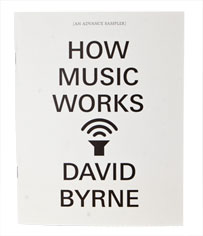
We've loved
John Brandon for quite a while now. He caught our attention with
Arkansas, his debut novel, and when the bleak, haunting
Citrus County came out last year, we shivered and marveled in equal measure. So, when we heard from our friends at McSweeney's about his third novel,
A Million Heavens, we hoped that maybe this was the time to introduce him to our Indiespensable subscribers. Once we got through our advance copies, we were sure of it.

A Million Heavens showcases Brandon's deadpan, precise, and inventive language with an eerie, semi-magical story and lots of fascinatingly flawed characters — though they're not quite as dark as the characters in Citrus County. As Brandon says in his interview with Jill, "It was obvious to me while I was writing [the new book] that these were better people, people you'd more like to know in real life." The characters in A Million Heavens struggle with loss, music, and the concept of innocence, including a boy who lies in a coma after playing the piano for the first time; the mayor of a dying New Mexico town; a recently deceased musician stuck in a mysterious afterlife; and a sentient, possibly immortal, wolf.
 We've also long been excited, embarrassingly so, about another McSweeney's project — David Byrne's How Music Works, scheduled to be published in September. If you don't know who David Byrne is (though, how can you not know who David Byrne is?), he's the Oscar- and Grammy-winning songwriter and lead singer of the Talking Heads. He's collaborated with numerous musicians, including Brian Eno and recently St. Vincent, and has released a ton of solo music, as well as written and directed several films. He's also a brilliant and bizarre cultural observer and amateur sociologist, and he's written books on subjects from biking to photography to advertising. How Music Works is a fascinating celebration of music in all its forms and the ways it makes us who we are. It was a perfect fit to include a chapbook of some of Byrne's essays from How Music Works alongside a novel in which music plays such a central role. (And if you'd like to read the whole book, you can save 30% on it at Powells.com.)
We've also long been excited, embarrassingly so, about another McSweeney's project — David Byrne's How Music Works, scheduled to be published in September. If you don't know who David Byrne is (though, how can you not know who David Byrne is?), he's the Oscar- and Grammy-winning songwriter and lead singer of the Talking Heads. He's collaborated with numerous musicians, including Brian Eno and recently St. Vincent, and has released a ton of solo music, as well as written and directed several films. He's also a brilliant and bizarre cultural observer and amateur sociologist, and he's written books on subjects from biking to photography to advertising. How Music Works is a fascinating celebration of music in all its forms and the ways it makes us who we are. It was a perfect fit to include a chapbook of some of Byrne's essays from How Music Works alongside a novel in which music plays such a central role. (And if you'd like to read the whole book, you can save 30% on it at Powells.com.)
By now we were on a roll — or, at least, a theme: the "music box"! So, after reading so much fiction and nonfiction about music, if you're inspired to make your own, you'll have a Hohner Old Standby harmonica, in the key of C. Hohner has been making harmonicas for 150 years, and the Old Standby's a solid choice. It's particularly good for blues, but it'll work for rock, country, folk, or pretty much anything... including songs from the afterlife.